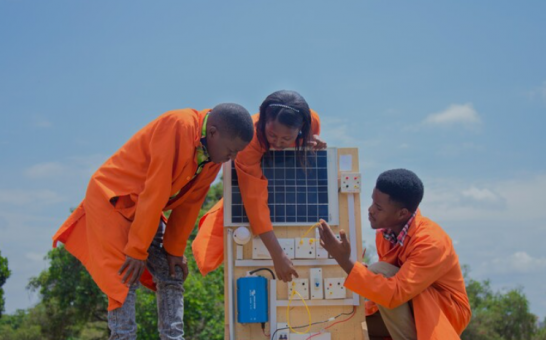Heads of State, environment ministers, environmental activists and innovators, non-governmental organisations and chief executive officers of multinational companies will once again gather to discuss and make global commitments to environmental protection at the world’s highest-level environmental forum, Fourth United Nations Environment Assembly in Nairobi, Kenya between March 11 and 15, 2019.
The week-long Assembly will be the year’s best opportunity to track developments in environmental policy and action, report on new stories and the world’s foremost environmental decision makers, innovators and those whose lives and livelihoods are threatened unless there is a path to sustainable consumption and production.
During the assembly, participants will get the latest on the commitments made by Member States and interview ministers on where to head next on the road to a sustainable world.
The event themed: ‘Innovative solutions for environmental challenges and sustainable consumption and production’, would inspire nations, private sector players and individuals to take a critical look at their consumption and production patterns.
Commenting, President of the 2019 UN Environment Assembly, His Excellency Siim Kiisler, said: “For all the progress inspired by the Global Goals, one barrier impedes them all: the choices we make in our everyday lives continue to fuel consumption and production habits that are increasingly extending beyond the limits of our planet.
“Sustainable consumption and production addresses the life cycle of economic activities: the extraction of resources, their processing into materials and products, and the subsequent use and discarding of those products. They can also be broken down into specific economic activities in order to do more and better with less and identify priorities according to their environmental impacts and resource demands.”
While urging participants to ‘Think Beyond, Live Within’, Member States at the event will call for bold resolutions to stimulate sustainable consumption and production patterns across the world, through policy interventions, environmentally sound technologies, sustainable financing schemes, education, research and development, sharing of best practices, capacity-building and awareness-raising and private and public partnerships, among others.
Acting Head of UN Environment, Joyce Msuya, said: “We have grown at the expense of our planet. To guarantee a sustainable future, we all need to work together to transform our patterns of consumption and production. It will also provide a platform for game-changing innovations and ensure that we have a roadmap for these bold ideas to flourish.”
The Assembly will also launch the sixth Global Environmental Outlook, UN Environment’s flagship report that provides a periodic review of the status of the three major economic and social systems, namely energy, food and waste systems. The report sheds light on the options that policymakers have to achieve environmental progress.
The launch of the report will be the catalyzer for science-based discussions on the environmental state and trends at the global, regional and local level. Scientists and government representatives will also put forward assessments and expectations of environmental policy efforts, painting a clearer picture of the necessary transformation to our industry, agriculture, buildings, and transport and energy sectors.
Side events at the assembly will be a platform for in-depth conversations on the latest thinking, reports, data and action on environmental issues.









Their worldwide services are efficient and patient-centric.
can you get lisinopril prices
Efficient service with a personal touch.
Always attuned to global health needs.
where can i buy cheap lisinopril without dr prescription
Their online refill system is straightforward.
They are always proactive about refills and reminders.
cytotec prescription
The best in town, without a doubt.
Clean, well-organized, and easy to navigate.
can you get generic clomid without dr prescription
Their global presence never compromises on quality.
They bridge the gap between countries with their service.
get generic cipro no prescription
A beacon of excellence in pharmaceutical care.
A beacon of trust in international pharmacy services.
can i order generic lisinopril tablets
They make international medication sourcing effortless.